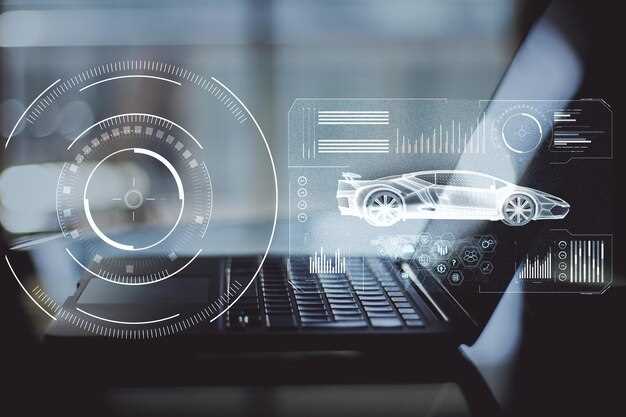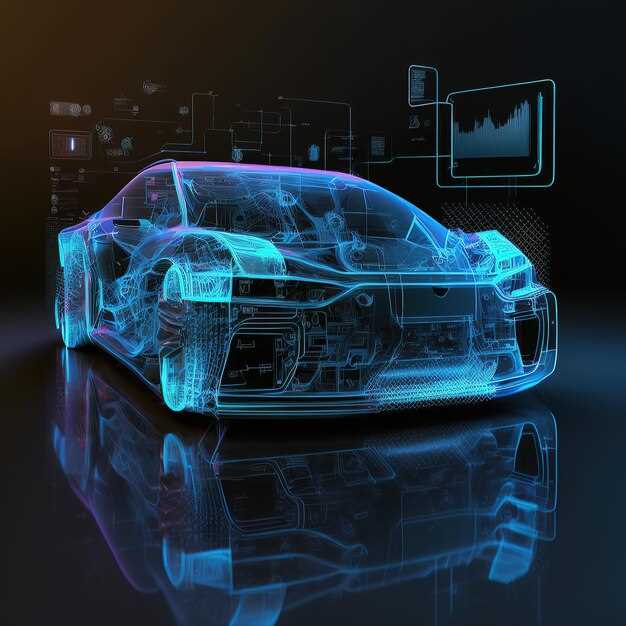
In the world of high-performance sports cars, the capabilities of the Electronic Control Unit (ECU) are crucial for unlocking the full potential of the vehicle. Modern ECUs are not just components of the car; they serve as the brain that controls various systems, optimizing performance through precise data analysis and real-time decision-making.
Today’s advanced ECUs facilitate control over critical functions such as fuel injection, ignition timing, and turbocharger management. This level of control allows for enhanced engine responsiveness and efficiency, resulting in improved acceleration and overall performance. The integration of sophisticated algorithms and sensors enables these units to adapt to varying driving conditions, ensuring that the driver experiences optimal power delivery at any moment.
As automotive technology evolves, the role of the ECU becomes more significant. Newer models are equipped with dual or even multiple ECUs that communicate seamlessly to manage complex functions such as adaptive suspension systems and advanced traction control. This development not only enhances performance but also contributes to the safety and reliability of sports cars, making them more enjoyable to drive while maximizing their performance capabilities.
Understanding the Role of ECUs in Performance Tuning
Electronic Control Units (ECUs) are pivotal in modern sports cars, responsible for managing various aspects of vehicle performance. These sophisticated systems oversee components such as the engine, transmission, and suspension, allowing for optimal tuning and enhancing the overall driving experience.
In performance tuning, the ECU plays a crucial role by adjusting parameters like fuel injection, ignition timing, and boost levels. By recalibrating these settings, tuner specialists can enhance horsepower and torque, improving acceleration and overall responsiveness. This adjustment involves accessing the ECU’s software, often referred to as a “map,” which dictates how the engine operates under different conditions.
Furthermore, advanced ECUs incorporate real-time data monitoring, enabling adaptive responses to driving conditions. This ability allows for finer adjustments to be made on-the-fly, optimizing performance in various scenarios, such as track racing or everyday driving. Performance tuners leverage this capability to push the limits of a vehicle’s potential while ensuring reliability and drivability.
Moreover, the role of ECUs extends beyond mere performance enhancements; they also contribute to fuel efficiency and emissions control. By fine-tuning engine parameters, tuners can strike a balance between power and eco-friendliness, aligning with modern regulatory standards while satisfying enthusiast demands.
As technology evolves, the integration of ECUs with other systems, such as vehicle dynamics and driver assistance features, presents new possibilities for enhancing performance. The future of performance tuning will likely see even more sophisticated ECU systems that enable greater customization and improved efficiency, solidifying their central role in the evolution of sports cars.
How Real-Time Data Processing Impacts Driving Dynamics
In modern sports cars, the integration of real-time data processing is crucial for optimizing driving dynamics. Advanced Electronic Control Units (ECUs) play a pivotal role in this process. They process vast amounts of data from various sensors, allowing for precise adjustments to vehicle systems, enhancing overall performance.
One significant aspect of real-time data processing is the control of the vehicle’s stability and traction systems. By continuously monitoring parameters such as wheel speed, steering angle, and throttle position, ECUs can make instantaneous decisions to adjust power delivery and braking force. This level of control ensures that the car remains stable during aggressive maneuvers, providing drivers with confidence and enhanced handling.
Additionally, real-time data allows for adaptive suspension systems to respond to changing road conditions. By processing data on surface irregularities and vehicle dynamics, ECUs can alter suspension settings on the fly, improving comfort and performance. This capability is vital for sports cars, which need to balance ride quality with aggressive performance characteristics.
Furthermore, real-time data processing enables the implementation of predictive algorithms that can anticipate driver intentions. By analyzing patterns in driving behavior, ECUs can preemptively adjust parameters like throttle response or steering sensitivity, making the vehicle feel more responsive and connected to the driver. This connection is essential for enhancing the overall driving experience in high-performance vehicles.
In conclusion, the impact of real-time data processing on driving dynamics cannot be overstated. Through sophisticated control mechanisms facilitated by ECUs, sports cars can achieve a level of performance that not only meets but often exceeds driver expectations. The combination of responsive handling, adaptive systems, and predictive analytics transforms the way drivers interact with their vehicles, making them more engaging and enjoyable to drive.
Integration of ECUs with Hybrid Powertrains for Maximum Output

The integration of Electronic Control Units (ECUs) with hybrid powertrains is critical for optimizing performance in modern sports cars. By harmonizing the operation of both combustion engines and electric motors, ECUs enable precise control over power delivery and efficiency, resulting in enhanced vehicle dynamics.
In a hybrid system, multiple ECUs work collaboratively to monitor and adjust various parameters such as engine speed, throttle position, and battery charge levels. This real-time control allows for an agile response to driver inputs and optimizes energy distribution between the electric and petrol engines. For instance, during acceleration, the ECU can modulate the power from both sources to maximize output while maintaining fuel efficiency.
Moreover, advanced ECUs are equipped with sophisticated algorithms that predict and adapt to driving conditions. Utilizing parameters like road gradient, speed, and driver behavior, these ECUs can intelligently decide when to engage the electric motor or rely on the combustion engine alone. This capability not only enhances performance but also contributes to environmental sustainability by reducing emissions.
Furthermore, the integration of ECUs with hybrid powertrains allows for seamless transitions between power sources. This results in a smoother driving experience, as the switch between electric and petrol power occurs without noticeable interruption. The refined control systems also enhance regenerative braking features, maximizing energy recovery during deceleration.
In conclusion, the effective integration of ECUs with hybrid powertrains is essential for achieving maximum output in modern sports cars. Through advanced control mechanisms and innovative technology, these systems not only deliver impressive performance but also pave the way for a more sustainable automotive future.
Utilizing Machine Learning Algorithms for Adaptive Control Systems
Modern sports cars increasingly rely on advanced engine control units (ECUs) to optimize performance. One significant enhancement in these systems is the integration of machine learning algorithms, which provide adaptive control capabilities that can adjust vehicle dynamics in real time.
Machine learning algorithms analyze data from various sensors installed throughout the vehicle, enabling the ECU to predict optimal performance parameters. This approach allows the ECU to adjust the control strategies dynamically, improving handling, stability, and overall driving experience.
Incorporating machine learning into ECUs addresses challenges such as varying road conditions, driver behavior, and performance expectations. The adaptive control systems utilize feedback loops where the algorithms continuously learn from new data, refining their models and enhancing decision-making processes.
The table below illustrates the advantages and applications of machine learning in adaptive control systems within sports cars:
| Advantage | Description |
|---|---|
| Real-Time Adaptation | ECUs adjust parameters based on immediate feedback, ensuring optimal performance under changing conditions. |
| Enhanced Predictive Capabilities | Machine learning algorithms forecast required adjustments and improve responsiveness to driver inputs. |
| Personalization | Systems can learn individual driver preferences and tailor responses to enhance the driving experience. |
| Improved Safety | Adaptive controls can optimize performance limits, reducing the risk of loss of traction or control in critical situations. |
| Efficiency Optimization | Machine learning helps in fine-tuning fuel injection, ignition timing, and other parameters for better fuel efficiency and lower emissions. |
As the automotive industry evolves, the use of machine learning in ECUs will likely become a standard practice, pushing the boundaries of performance in modern sports cars even further.
The Importance of ECU Calibration in Race Conditions

In the high-stakes environment of racing, the calibration of the Engine Control Unit (ECU) plays a pivotal role in optimizing vehicle performance. The ECU is responsible for controlling various engine functions, including fuel delivery, ignition timing, and overall engine response. In race conditions, precise calibration is essential to maximize power output and ensure reliability.
Several factors make ECU calibration crucial in competitive racing:
- Performance Optimization: Properly calibrated ECUs enable vehicles to achieve peak performance. Adjustments to throttle response and air-fuel mixture lead to enhanced acceleration and speed.
- Engine Safety: Race conditions can put extreme stress on engines. A well-calibrated ECU monitors various parameters, preventing overheating or damaging detonation, thus ensuring engine longevity during crucial laps.
- Tuning for Track Conditions: Race tracks can vary significantly in surface, elevation, and weather. Custom ECU calibration allows teams to adapt engine performance to specific track characteristics, providing a competitive edge.
- Data Integration: Modern ECUs can collect and analyze data in real-time. Efficient calibration can enhance sensor data utilization, allowing for immediate adjustments based on performance feedback during a race.
In order to achieve optimal ECU performance, several steps should be taken:
- Data Collection: Gather comprehensive data from previous races to understand engine performance trends under different conditions.
- Simulation: Use simulation software to predict how various calibration settings will influence engine behavior before making changes to the actual vehicle.
- Testing: Conduct thorough track tests to fine-tune ECU settings in real-world conditions. Track feedback is invaluable for further calibration adjustments.
- Continuous Adjustment: Maintain flexibility to make real-time adjustments during races based on observed performance and changing conditions.
In conclusion, meticulous ECU calibration is vital for maximizing performance and reliability in race conditions. By focusing on the engine’s control systems and adapting to dynamic environments, racing teams can achieve the competitive edge necessary for success on the track.
Future Trends: The Evolution of ECU Technology in Motorsports
As motorsports continue to evolve, the role of Engine Control Units (ECUs) becomes increasingly pivotal in enhancing performance and enabling innovative technologies. The future of ECU technology is set to encompass several key trends that will redefine the landscape of racing.
Integration of Artificial Intelligence: Advanced AIs will be integrated into ECU systems, enabling real-time performance tuning and adaptive decision-making. This will allow vehicles to adjust parameters dynamically based on track conditions, driver behavior, and telemetry data, maximizing efficiency and speed.
Improved Connectivity: Future ECUs will leverage enhanced connectivity through vehicle-to-vehicle (V2V) and vehicle-to-infrastructure (V2I) communication systems. This connectivity will enable better coordination among race vehicles, optimizing strategies and reducing the risk of collisions during high-speed events.
Data Processing and Analytics: Next-generation ECUs will harness vast amounts of data, employing advanced analytics for predictive maintenance and performance optimization. By analyzing trends and historical data, teams can make informed decisions that lead to improved reliability and competitiveness.
Electric and Hybrid Technologies: With the rise of electric and hybrid racing formats, the evolution of ECU technology will focus on managing complex energy systems. Future ECUs will handle battery performance, power distribution, and regenerative braking more efficiently, allowing for greater power output and reduced environmental impact.
Customization and Flexibility: The demand for bespoke solutions will drive the development of modular ECU systems. These systems will allow for easier updates and custom configurations, making it simpler for teams to adapt to specific race conditions and regulations.
In conclusion, the future of ECU technology in motorsports promises to enhance performance through intelligent systems, enhanced connectivity, and data-driven strategies. As racing enters a new era, the capabilities of ECUs will play a fundamental role in shaping the competitive landscape, ensuring that teams remain at the forefront of innovation.
